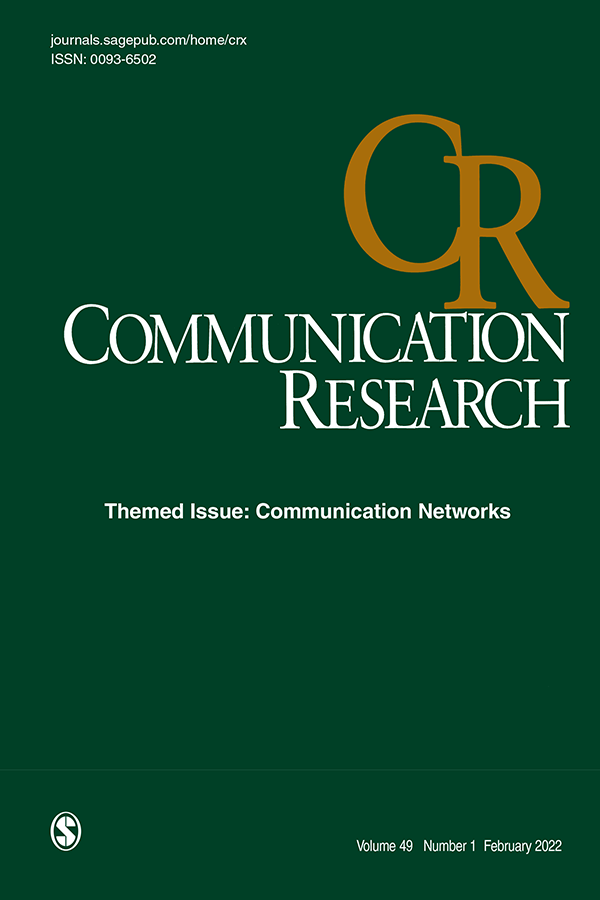Media Literacy Interventions Improve Resilience to Misinformation: A Meta-Analytic Investigation of Overall Effect and Moderating Factors
IF 3.2
1区 文学
Q1 COMMUNICATION
引用次数: 0
Abstract
The widespread dissemination of misinformation has become a global concern. A recommended solution is to improve people’s ability to discern true from false information through appropriate media literacy education programs. This meta-analysis quantitatively synthesized the results of 49 experimental studies ( N = 81,155) that examined the efficacy of media literacy interventions in mitigating misinformation. This study finds that media literacy interventions generally improve resilience to misinformation ( d = 0.60). Specifically, the interventions reduce belief in misinformation ( d = 0.27), improve misinformation discernment ( d = 0.76), and decrease misinformation sharing ( d = 1.04). Moreover, media literacy interventions have stronger effects (1) when multiple sessions rather than a single session are implemented, (2) in high (vs. low) uncertainty avoidance cultures, and (3) among college students than among adults recruited from online crowdsourcing platforms (e.g., Amazon Mechanical Turk). These findings enrich our understanding of inoculation theory and provide valuable guidance for the design of future media literacy intervention programs.媒体扫盲干预提高了对错误信息的适应能力:对总体效果和调节因素的元分析调查
错误信息的广泛传播已成为全球关注的问题。建议的解决方案是通过适当的媒体扫盲教育计划提高人们辨别真假信息的能力。本荟萃分析定量综合了 49 项实验研究(N = 81,155 )的结果,这些研究考察了媒介素养干预措施在减少错误信息方面的效果。本研究发现,媒体素养干预措施普遍提高了人们对错误信息的抵御能力 ( d = 0.60)。具体来说,干预措施降低了对误导信息的相信 ( d = 0.27),提高了对误导信息的辨别能力 ( d = 0.76),减少了误导信息的分享 ( d = 1.04)。此外,媒体扫盲干预措施在以下方面具有更强的效果:(1) 实施多个环节而非单个环节;(2) 在高不确定性规避文化(与低不确定性规避文化)中;(3) 在大学生中比在从在线众包平台(如亚马逊 Mechanical Turk)招募的成年人中具有更强的效果。这些发现丰富了我们对接种理论的理解,并为未来媒体素养干预项目的设计提供了宝贵的指导。
本文章由计算机程序翻译,如有差异,请以英文原文为准。
求助全文
约1分钟内获得全文
求助全文
来源期刊

Communication Research
COMMUNICATION-
CiteScore
17.10
自引率
0.00%
发文量
20
期刊介绍:
Empirical research in communication began in the 20th century, and there are more researchers pursuing answers to communication questions today than at any other time. The editorial goal of Communication Research is to offer a special opportunity for reflection and change in the new millennium. To qualify for publication, research should, first, be explicitly tied to some form of communication; second, be theoretically driven with results that inform theory; third, use the most rigorous empirical methods; and fourth, be directly linked to the most important problems and issues facing humankind. Critieria do not privilege any particular context; indeed, we believe that the key problems facing humankind occur in close relationships, groups, organiations, and cultures.
 求助内容:
求助内容: 应助结果提醒方式:
应助结果提醒方式:


